On Swift Horses star Diego Calva on playing Jacob Elordi’s on-screen boyfriend and his mental health journey
Here, the 33-year-old from Mexico City talks bonding with Elordi over Nintendo Switch, portraying “two sweet guys who really fall in love”, and his fundamental connection to queer characters
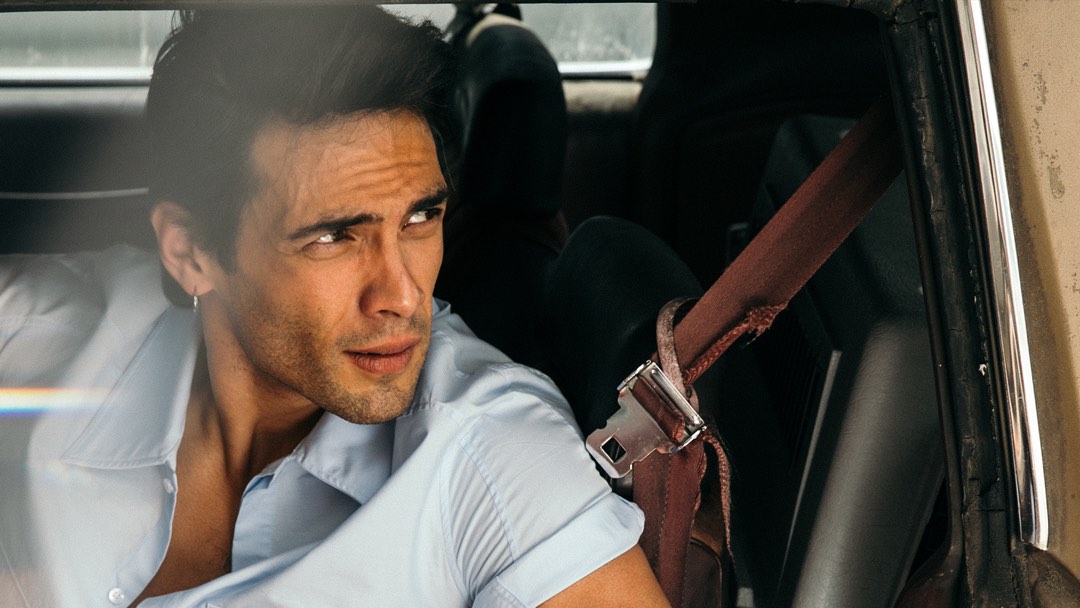
“Being naked around Jacob Elordi is intimidating!” declares Diego Calva with an infectious giggle, describing his co-star in On Swift Horses. We get it: the pair spend much of this new 1950s-set romance rolling around in matching tighty-whities. “He’s like a fucking god!” Calva adds. “He’s too perfect!” Cue more infectious giggling.
Coming from the beautiful with a capital ‘B’ man whose mesmeric face was the best thing about 2022’s Babylon, such modesty is a charming quality. (In a wild turn of events, I bump into Elordi in a London pub that very night, and the Euphoria star is naturally over the moon to learn his friend has landed an Attitude cover.)
Calva then reveals how he bonded with Elordi. “He plays Pokémon. He was playing it on Nintendo Switch. I’d just finished the new game three weeks before. That was the icebreaker: ‘How do you catch this Pokémon?’ We just started playing!”
In On Swift Horses, Calva plays card shark Henry, who starts a passionate affair with drifter and hustler Julius (Elordi). (Rounding out the cast is Warfare’s Will Poulter as Julius’s strapping, all-American brother Lee, and Normal People’s Daisy Edgar-Jones as Lee’s secretly queer wife, Muriel.)
Calva was Golden Globe-nominated for his role in Babylon as Hollywood exec Manny, the only man wonderful enough to (briefly) tame Margot Robbie’s dazzling 20s starlet Nellie. Who tames who in On Swift Horses is up for debate.
“What I can say is: Hollywood likes me in a period movie, kissing Australian people!” Calva points out. Quite.
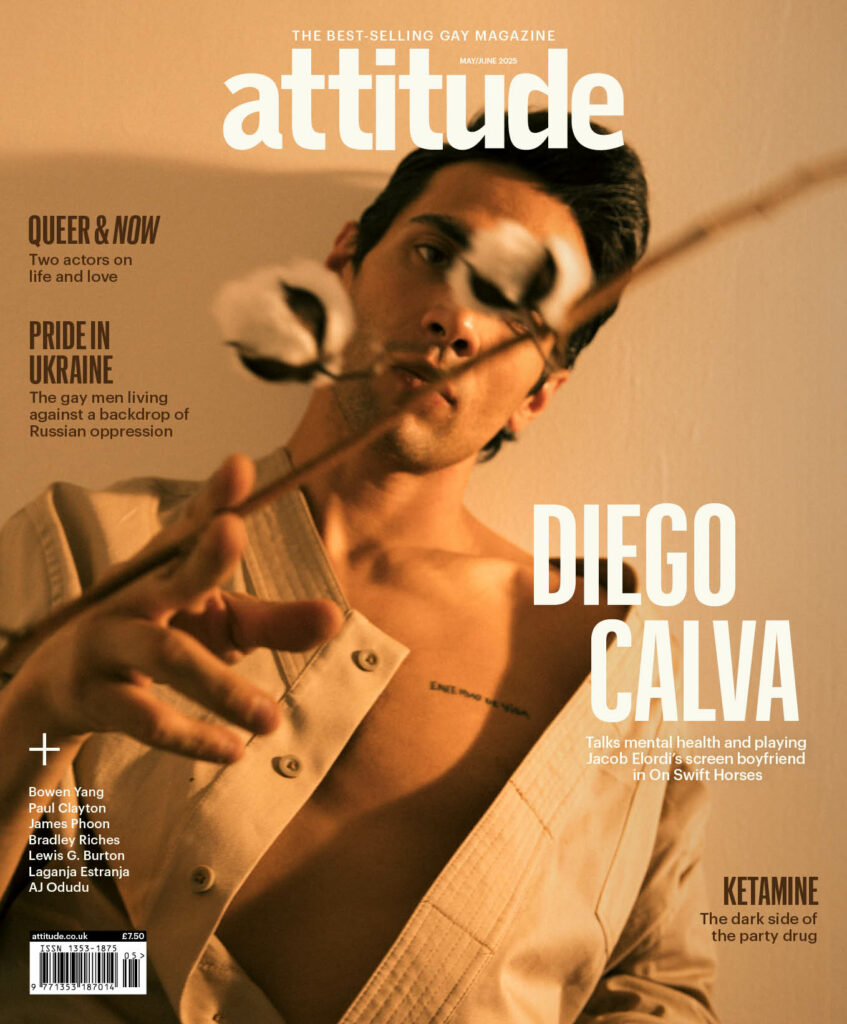
News of Margot Robbie and Elordi playing tortured lovers in a new take on Wuthering Heights is “funny” to Calva. “Doing Horses, Jacob asked me a lot about Margot,” he says. “Margot’s the queen of Australia, and now we have a new king. … I feel pretty lucky — I’ve kissed both!”
This rapidly rising star has form for cheeky quotes. Ever since he teased On Swift Horses’ “pretty hot” sex scenes in a Variety interview in 2023 — and after Barry Keoghan raised the stakes with his bath-drinking revelry opposite Elordi in 2023’s Saltburn — the thirst for this film has been real. Battle-hardened by the explicit nature of Euphoria, The White Lotus et al, this viewer went in expecting… Well, it’s partly set in Las Vegas, land of Showgirls. Strip poker at least? What I was not expecting was a central dynamic of Heartstopper-level sweetness and a love story, based on the novel of the same name by Shannon Pufahl, that snaps at the heels of Brokeback Mountain and Call Me by Your Name. “It’s like when you fall in love with your first love when you’re eight,” says Calva. “You fall in love with your cousin or your teacher. Something really sweet, platonic, in a way. …When they’re inside the hotel room, in their world, because they have to hide from the actual world — they’re kids.”
It’s strange to think that their love, in 1950s America, is illegal; stranger still to think homosexuality was only effectively legalised in America in 2003, when the Supreme Court struck down all remaining state sodomy laws in the landmark Lawrence v. Texas case. (Yes, that recently.) As such, the sex scenes are pointedly there, in flip-flopping abundance, but they’re tasteful. The best, in which Julius pins Henry against a mirror, is shot from the shoulders up: the sight of these two handsome faces, reflected into four, is almost more male beauty than the camera can bear.
“It’s hard not to do a hot scene with Jacob shirtless!” says Calva, before adding: “Dan [Minahan], the director, is such a gentleman. He told us: ‘I don’t want to provoke the audience. This is about actual love. I don’t want a classic story of tragedy around these queer characters and then they have kinky sex — no, no, no. They’re two sweet guys who really fall in love.’” Calva’s protective of them. “Henry is wilder and more dangerous in the streets,” he adds. “But with Julius, he’s very tender.”
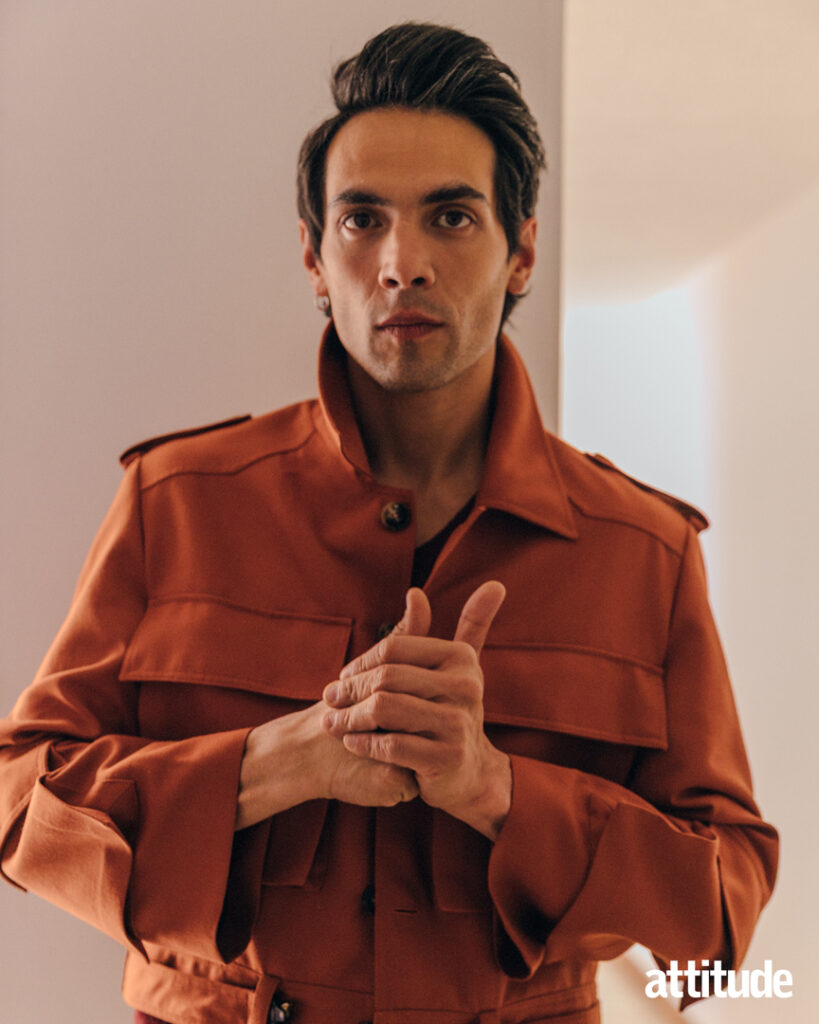
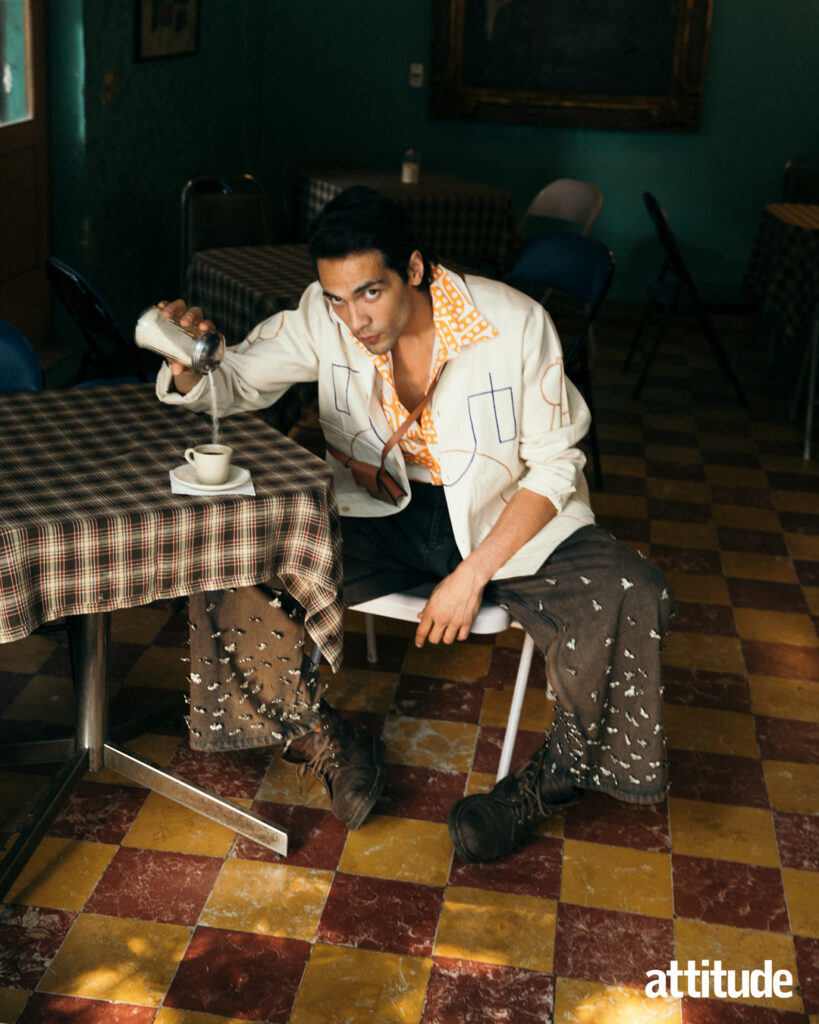
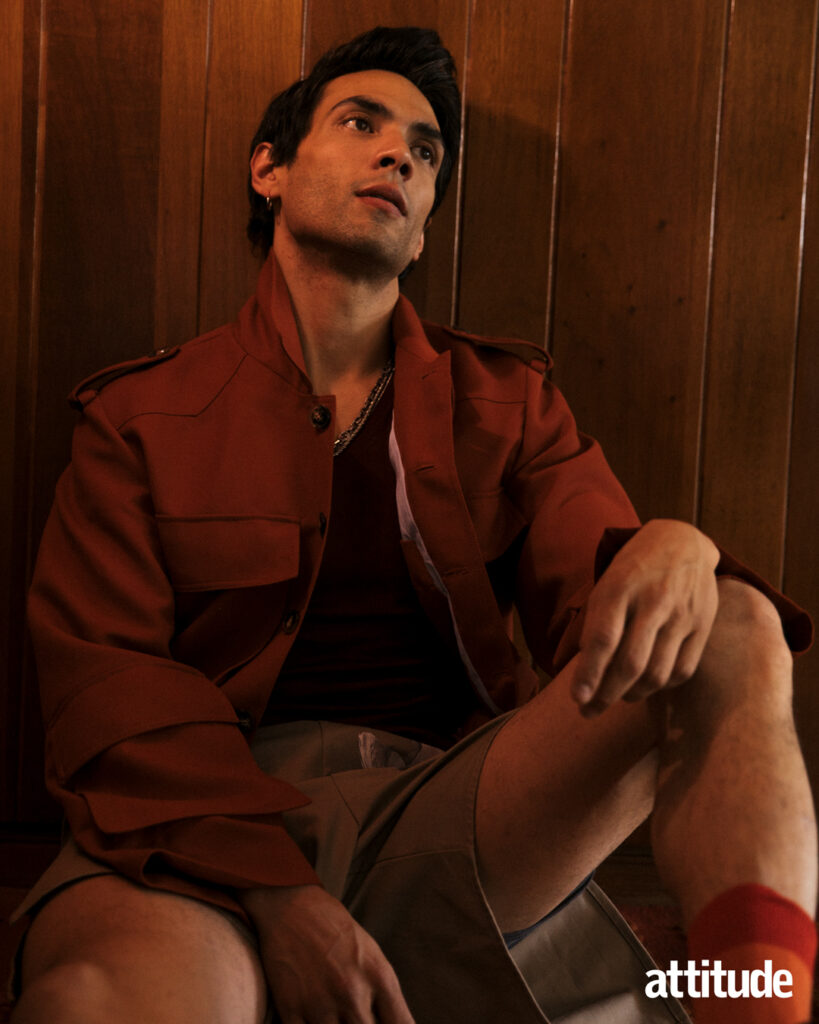
Calva is Zooming with me from Istanbul, Turkey, a country gripped by political instability. Within days, thousands march in protest over the arrest of Istanbul mayor Ekrem Imamoğlu, frontrunner in the 2028 presidential race and challenger to President Recep Tayyip Erdoğan, which is surely an attempt to crush democratic opposition. “I’ve seen groups of people — they’re trying to change stuff, I support them,” says Calva from his hotel lobby, energised.
Turkey is as good an example as any as to why films like On Swift Horses are vital — that’s if it’s even screened there. Authorities in Istanbul banned a 2024 screening of Daniel Craig’s Queer, after all, while Pride has been banned in Turkey since 2015. “Now I’m here, the movie’s a reminder that we still have a lot of jobs to do,” says Calva. “A reminder that it was not a long time ago that this was forbidden all over the world. … It’s crazy there are [still] places, countries, chasing queer people.”
“What is being straight? What is being queer? What’s a straight or queer character?”
Watching Calva’s two biggest films back to back is another reminder that progress, like sexual liberation, is more of a pendulum swing than a straight line. Babylon depicts roaring 20s Hollywood shifting from silent film to talkies in what was a decade of frenetic change, decadent excess and sexual debauchery, immortalised in a staggeringly drawn-out, swinging-from-the-chandeliers mass orgy scene where anything goes. (Coked-up watersports? You got it).
In contrast, ’50s America in On Swift Horses, with its low hemlines and white picket fences, seems positively draconian — you can almost feel the asphyxiation of nuclear family ideals as post-Second World War, post-Korean War society grasps for stability. “It’s crazy, no?” says Calva of the contrast. “The pioneers of moviemaking in the wild, crazy ’20s, there was a little more freedom. Then we started to put in a lot of rules. And after the Korean War, a lot of young guys came from the army having realised they’re gay, and now they don’t have a place to be.”
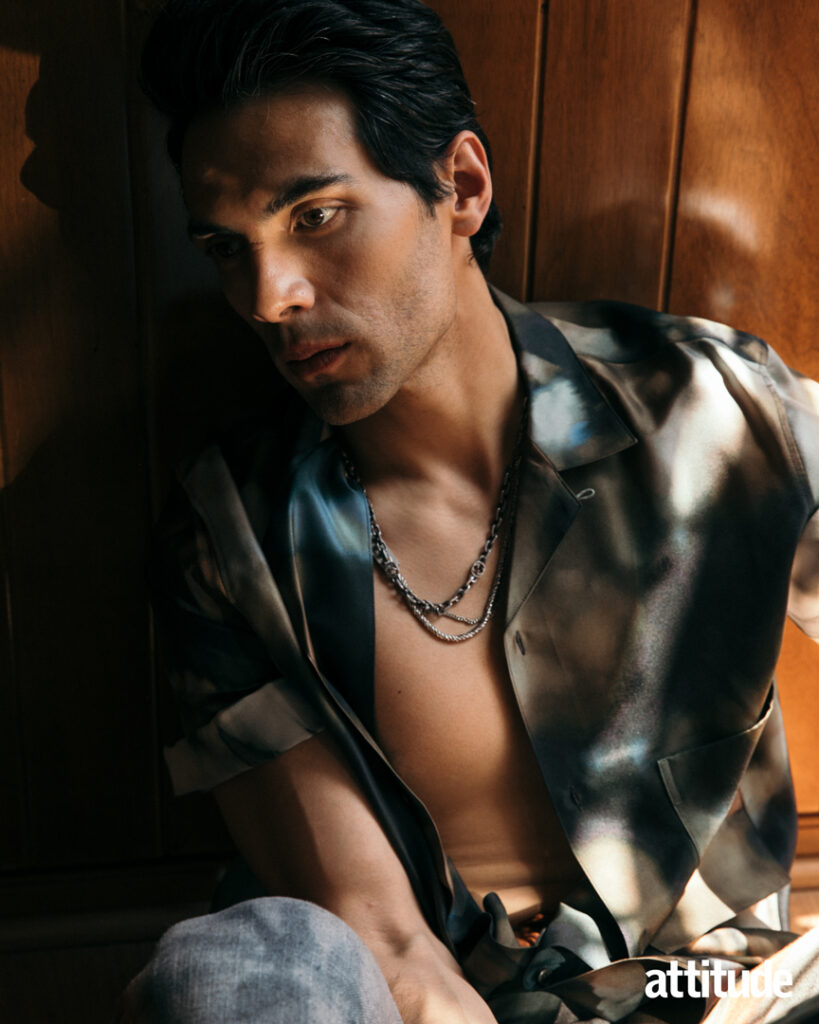
LGBTQ+ women had it no better, of course, as On Swift Horses illustrates so effectively with what might be a film first: a narrative split equally between a queer man and woman who are not a couple. Muriel’s first girl-on-girl kiss is interrupted by a police raid on a queer bar; later, she jitterbugs in her underwear in the privacy of her lover’s home, an adorably innocent moment laced with the threat of discovery. Babylon, meanwhile, has a sapphic sub-plot involving Chinese-American cabaret-singer Lady Fay (Li Jun Li) saving the life of Nellie by sucking snake venom from her neck — a gasp-inducing scene prompting a glass-closet affair and tabloid sensation. “We’re not used to talking about lesbians in film,” offers Calva. “Not that much. There’s a lot of fabric to cut, a lot of stories to tell.”
[…] Discussing the personal impact of playing queer characters, and the questions they’ve raised, Calva explains: “Every time I’ve played a character, I keep something. Not a prop, not part of the costume — something about their universe, their hearts. … I played a Columbian character, for example. Now I’m a really, really big salsa fan, and learnt about the political situation in ’90s Columbia.
“So, playing Henry, of course, there’s something about being queer… And I’m playing an immigrant. I realised I’ve felt what it is to be hiding as an immigrant, being chased, being judged for the colour of my skin. … It’s not about ‘queer Mexican’. It’s about the universe. What can you find, and keep, about the character? Then the conversation could turn to some [other] place. What is being straight? What is being queer? What’s a straight or queer character? For me, it’s actually the coolest part of my profession. I’m able to be a lot of different people for a month, for three months, and I’m going to be a little part of those characters for the rest of my life. And I’ll defend that statement always.”
To read the rest of this feature, check out issue 364 of Attitude magazine is available to order here, and alongside 15 years of back issues on the free Attitude app.
